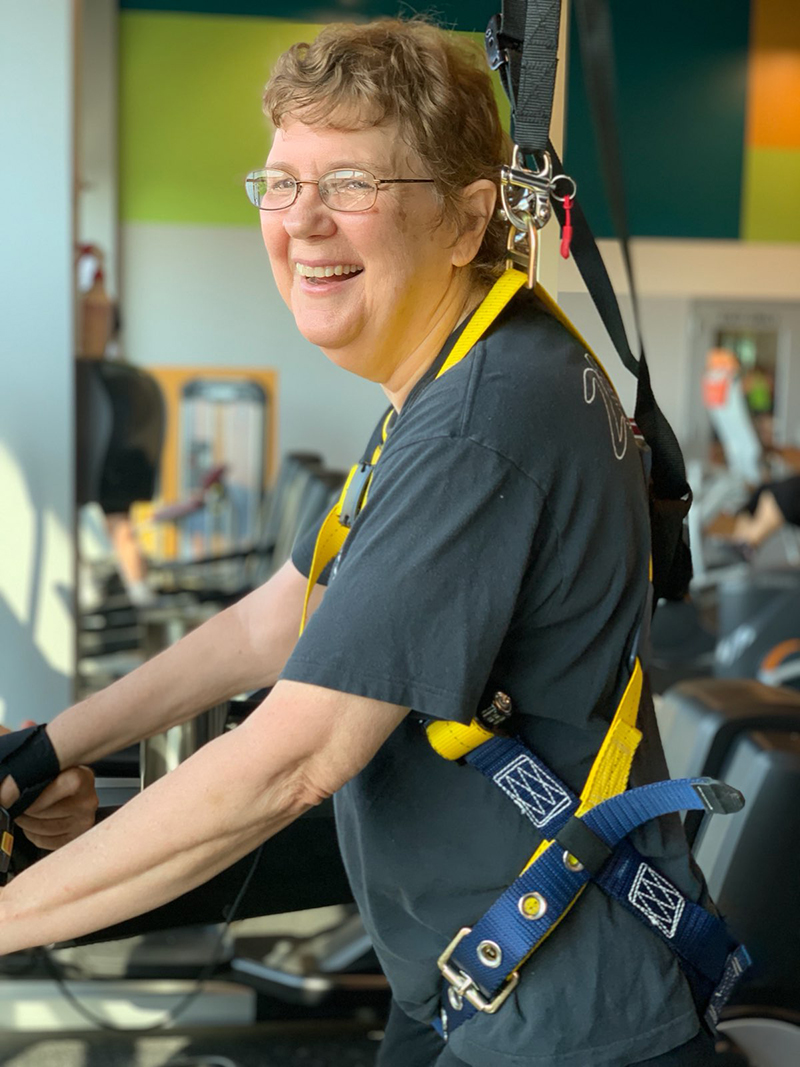
Our professional fitness trainers at the YMCA of Delaware have been busy hitting the books and the weight bench at the same time. Funding from the Chichester Foundation now makes it possible for each branch to train at least two staff as Certified Inclusive Fitness Trainers through the American College of Sports Medicine. The Certified Inclusive Fitness Trainer will be able to systematically address physical barriers experienced by individuals with disabilities like Sharon Schneider, who believed medical issues from a previous health concern would prevent her from exercising.
“Coming to the Y has improved my walking. I feel so much stronger and I really enjoy coming to the Y,” Schneider says. “I take a lot of medicine because of Diabetes, but working out at the Y has been the best medicine. Many times I am tired before I come, but after my workout, I feel fantastic.”
That’s exactly what Terri Borkland, Fitness Center Director at the Brandywine Y, wants to hear. Borkland, is among those who recently passed the extensive certification test to better serve people who may benefit from adapted fitness equipment or programs.
In addition to the newly certified trainers, many YMCA of Delaware locations provide special adaptive fitness equipment, specialized programming and even an overhead suspension system that allows individuals with physical challenges to participate in group exercise classes, walk on a treadmill, and/or perform other exercises from an assisted standing position.
“Being at the Y has improved my stamina and has let me celebrate the things that I can do rather than dwell on the things I cannot do. I am very grateful for the Y,” says Brandywine YMCA member Sue Olson.
According to the Delaware State Department of Health and Social Services, twelve percent of Delawareans have a disability that places them at risk for health complications. Borkland says trainers with the inclusive certification can bridge the gap and make a true difference in the lives of those who have medical issues ranging from hearing and sight impairments to cerebral palsy, Parkinson’s disease, arthritis, and other physical complications.